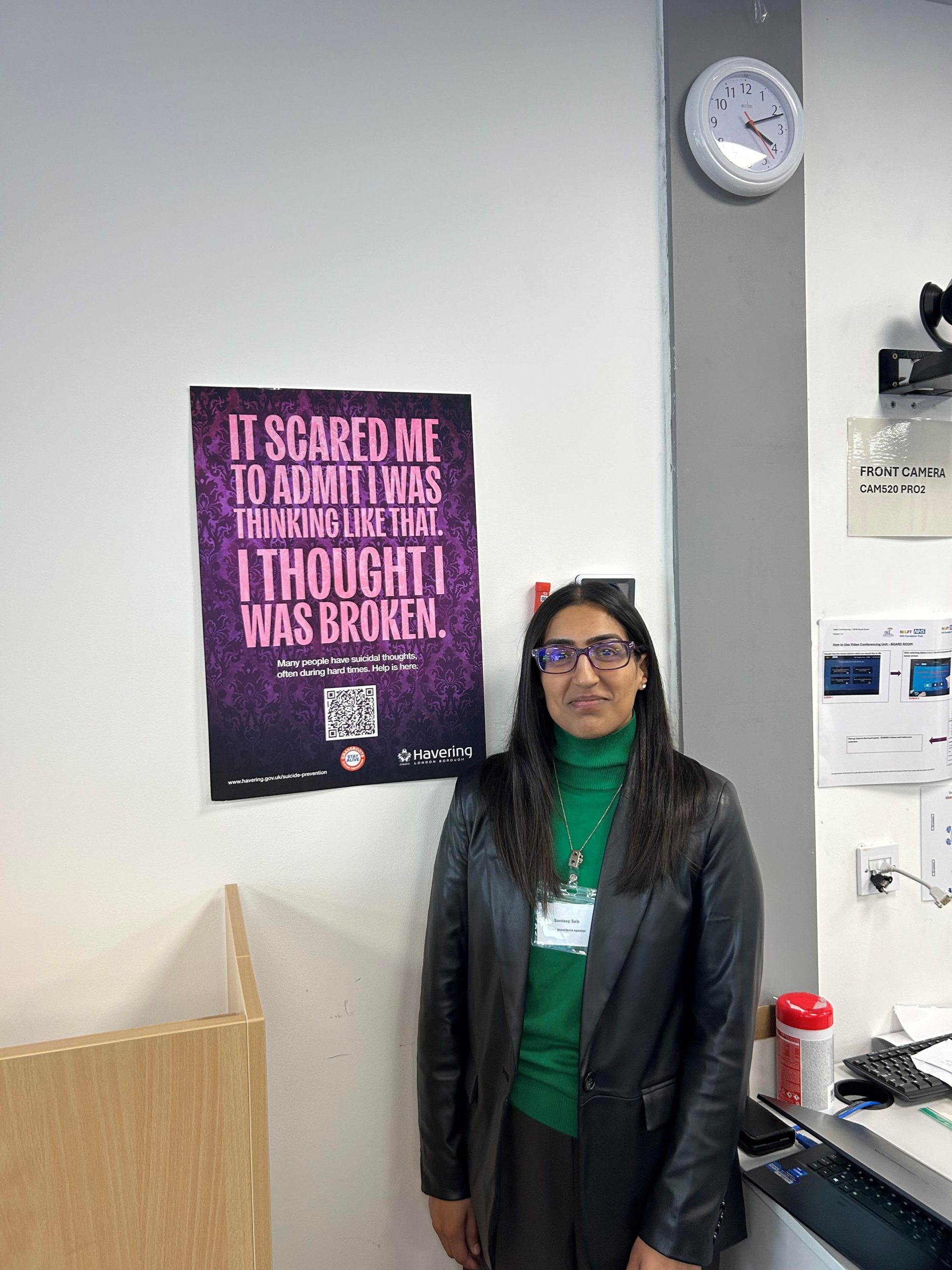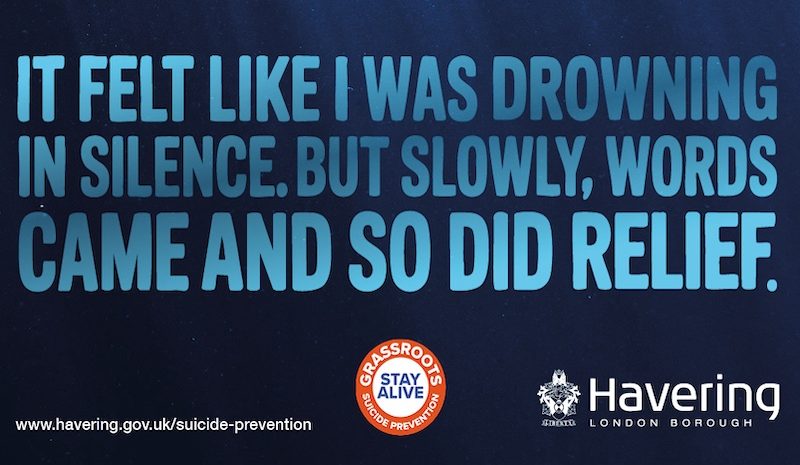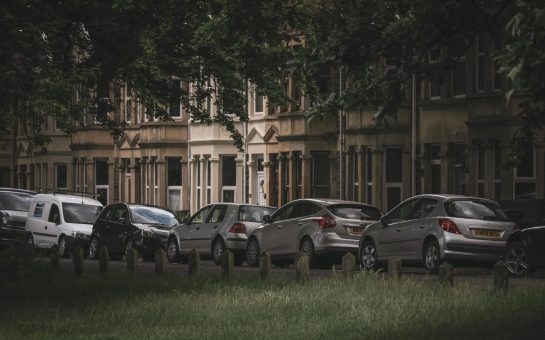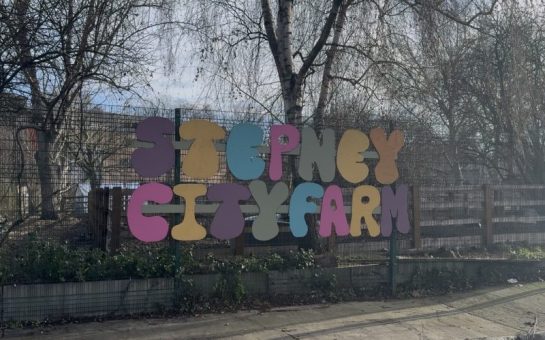A mental health advocate is urging people to open up about their mental health struggles amid a new suicide prevention campaign led by Havering Council.
The project seeks to foster open and empathetic dialogue around suicide in the hope that more people feel encouraged to reach out for support.
The borough’s efforts follows a report earlier this year which revealed that one person died by suicide every three weeks in Havering.
Sandeep Saib, a mental health advocate who provided testimony for one of the campaign’s graphics, said: “It felt like I was drowning in silence. But slowly, words came and so did relief. Talking about suicidal thoughts can feel terrifying, but it’s also a powerful step toward healing.”
Saib attempted to take her own life in August 2014 during a battle with anorexia nervosa, body dysmorphic disorder and obsessive-compulsive disorder.
Saib said: “The quote captures the profound isolation I felt during the times I couldn’t speak—or even think—about my pain.”
Now 11 years into recovery, Saib hopes that sharing her journey, particularly as a South Asian woman, not only helps others feel seen and heard but also provides a basis for mental reform.
Saib said: “I joined the Havering Lived Experience Advisory Group (LEAG) because I wanted to turn personal experience into purposeful action.”

LEAG is one of three key groups working to implement the Havering All-Age Suicide Prevention Strategy, a multi-agency, five year suicide prevention plan which aims to reduce the number of deaths by suicide in Havering.
According to the Havering Suicide Prevention 2024 Annual Report, released in May, there have been on average 18 registered deaths by suicide in Havering each year between 2013 and 2023, equating to one person taking their own life every three weeks in the borough.
Saib said: “These are not just numbers—they represent lives lost, families shattered, and communities in pain.”
While London recorded the lowest average suicide rate of any region in England in 2023, data from the Office of National Statistics found the number of suicides registered in 2023 in the capital rose by 5.6%.
Dr Phil Moore, chair of Thrive LDN, the regional lead for suicide prevention in London on behalf of NHS England, said roughly 10 people a week lose their life to suicide in the city.
Moore said: “We have got to come to the place where we don’t simply accept suicide as an inevitable.”
For Moore, moving toward this ambition means assuring people that talking about suicide isn’t going to make it worse and providing them with the confidence and tools needed to navigate such conversations.
Launched by the Mayor of London in 2019, Thrive’s #ZeroSuicideLDN campaign encourages Londoners to complete a free, 30-minute online suicide prevention training.
Moore estimates that around one million people in London have completed the program so far, and said that attempts to replicate this on a local level would be “ideal”.
Several initiatives have already been introduced across Havering and look to reach as many parts of its diverse community as possible through discussion and education.
Saib said: “There are hubs like faith groups, places of worship and local community hubs like libraries—areas where people get together, where they digress naturally.”
“That’s where we should be reaching out to and focusing the outreach efforts.”
While there is still much work to be done in Havering and across London, Saib said the team has seen “promising signs of progress” and are determined to keep the conversation going.
Said said: “Talking openly about suicide should be as normal as discussing physical health.”
She added: “I’ve had people tell me they were afraid to even say the word suicide. That fear is exactly why we must keep speaking.”
When life is difficult, Samaritans can help – day or night, 365 days a year. You can call them for free on 116 123, email them at [email protected], or visit www.samaritans.org to find your nearest branch.
Featured Image Credit: Havering Council





Join the discussion